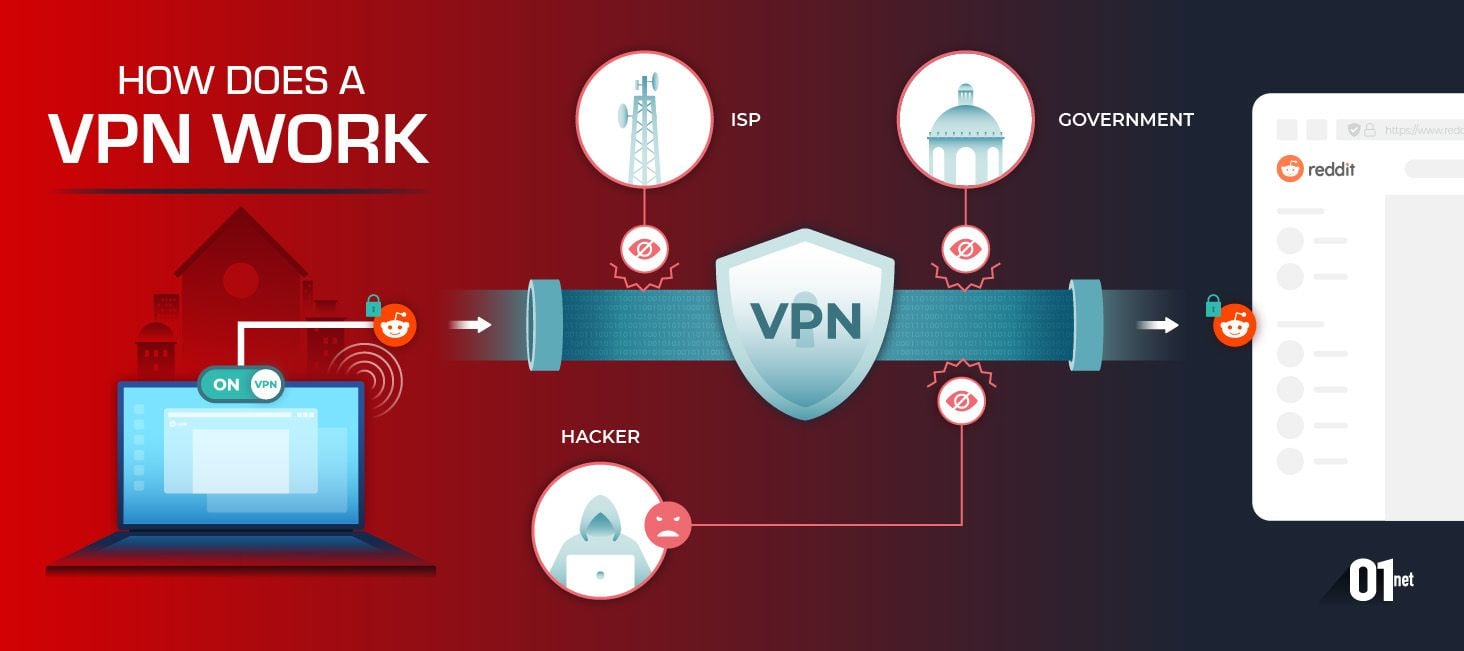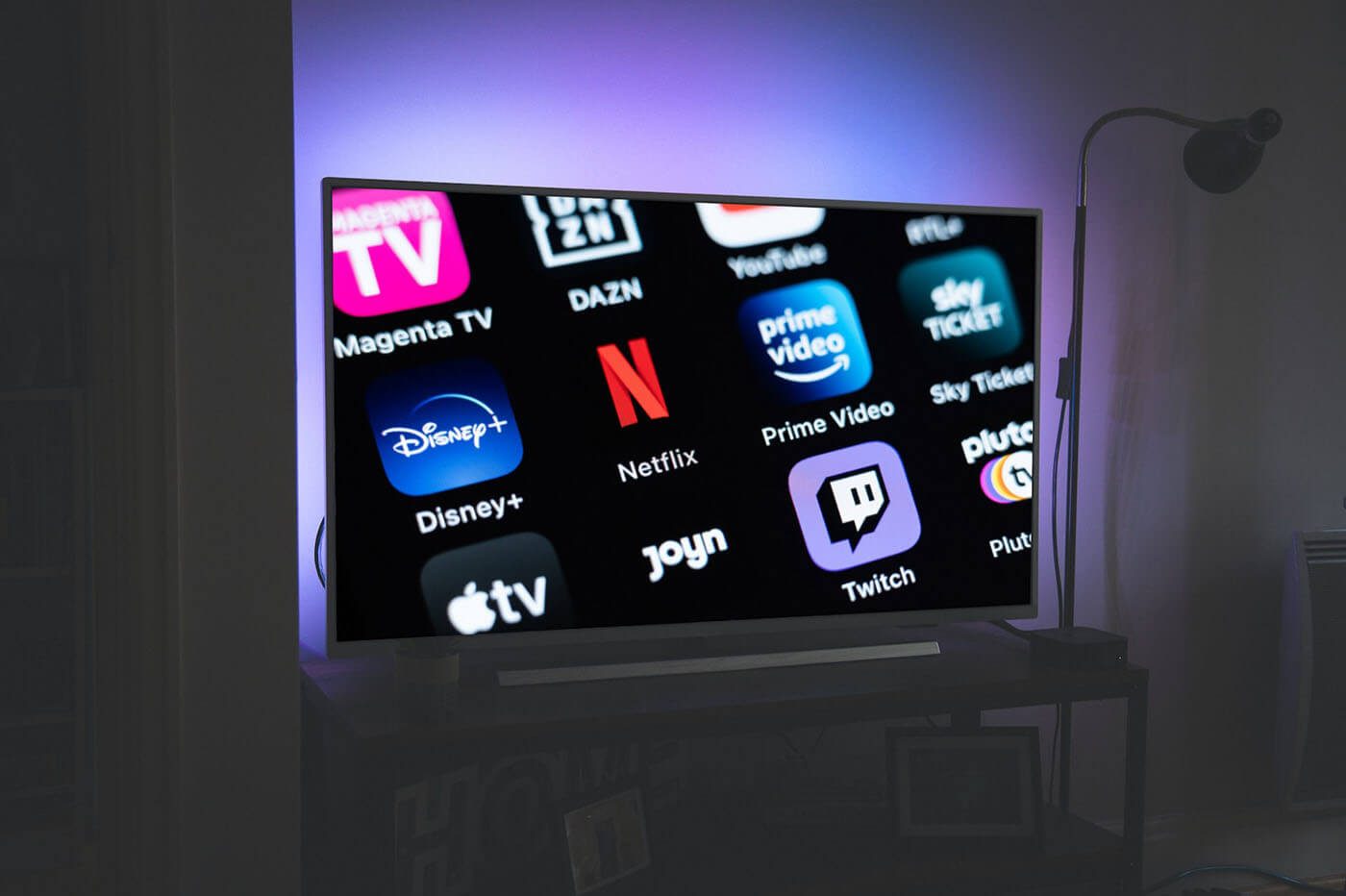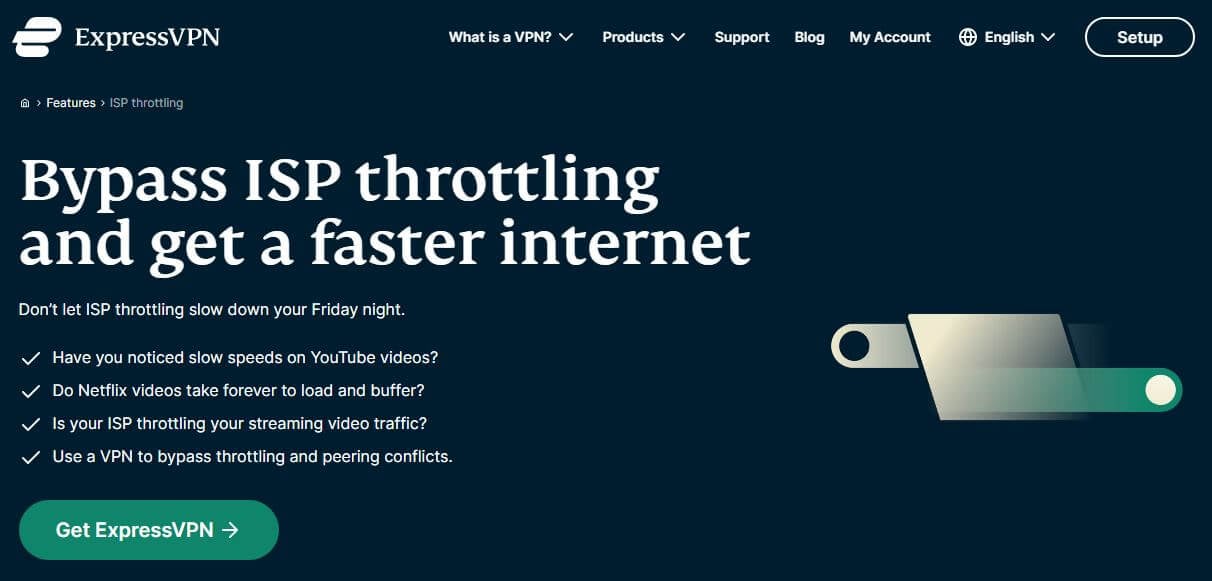If you do a quick Google search about VPNs, you’ll mostly see sites and platforms talking tons of great stuff about these services. They often mention online privacy, anonymity, security, streaming, torrenting, and other, thousand-times-repeated words. However, people who have never used this service will wonder what are the pros and cons of a VPN – and rightfully so. Not a single thing on this planet is perfect and each service, app, or anything else, has its share of advantages and disadvantages.
In today’s article, we’ll talk about every advantage and disadvantage of a VPN, explain them in-depth, and see if the advantages outweigh the disadvantages. If you’re unsure about whether or not to use a VPN, I think this article will solve 99% of your problems, so stay tuned.
Advantages of Using a VPN
In one of our recent articles, we talked about what is a Virtual Private Network, so if you’re interested, make sure you check that out. It is, in our opinion, crucial for understanding what is this service and how it really works, although you’ll get glimpses of that in today’s analysis.
For now, I think it’s great to start on a good note and talk about the advantages of using a VPN – follow closely.
Online Privacy
Since the term VPN stands for Virtual Private Network, it’s obvious we’re talking about a privacy tool. But how does a VPN protect your privacy? Well, this service works by routing your traffic through an intermediary server located somewhere else.

As a result, it changes your IP address, encrypts your traffic, and conceals your original IP address. When not using it, your Internet Service Provider (ISP) can see everything you do online, each site you visit, each torrent you download, etc.
This means you never have online privacy, as someone else can see your very footstep online. Your ISP can even see which apps you’re using, which, to us, sounds very concerning. We can say the same about the very apps you’re using, as most of them will register your IP address and track your activities.
Either way, once you’re online, you’re giving away your privacy to multiple entities, including your ISP. Thankfully, a VPN can remedy this issue by concealing your original IP and making sure only the VPN-given IP can be seen.
Thanks to added encryption (256-bit), your traffic is also untraceable, so you’re both anonymous AND you can browse the web without your ISP monitoring your steps. This also has an influence on torrenting, where your privacy is crucial.
The best VPNs for torrenting will encrypt your traffic and hide your IP so that you’re invisible to other peers, torrent sites, and your ISP which will definitely notice torrenting activities. With a VPN, you’ll slide under the radar and be able to enjoy 100% anonymous torrenting.
Security While Browsing the Web
When talking about the pros and cons of using a VPN, security is another important aspect. As said, there’s encryption going on, coupled with other security measures. This is crucial for security, especially when you’re on public WiFi networks where hackers are often lurking around.
They’ll try to steal your personal data by intercepting your traffic and reading its content. However, as your traffic is encrypted, a hacker will only see the garbled mess without the ability to read it. A VPN can also protect you against DDoS attacks, malware, trackers, and other threats.
Providers like CyberGhost, NordVPN, and ExpressVPN offer these bonus features, so it’s worth checking them out.
Bypassing Geo-Restrictions
One of the best benefits of using a VPN is the ability to get over online restrictions. Geo-restrictions are especially annoying, as they prevent you from accessing the content you want. This is typical for gambling sites but also streaming platforms like BBC iPlayer or Netflix.
Thanks to its ability to change your IP and online location, a VPN lets you access these sites regardless of your location. Once you’re connected to a server, you’ll be assigned an IP from that server, which is located somewhere else.

From that point, every site you visit will see that IP and “think” that you’re located somewhere else. If we’re talking about a US TV channel, for example, with a US IP, you’ll be able to watch it even if you’re located in Europe, Asia, Africa, or wherever.
We can say the same about restrictions in your school or workplace. A VPN’s ability to change your IP and encrypt your traffic is very welcome for accessing Facebook, YouTube, Twitch, or any other blocked site at work or in school.
Circumventing Censorship
Since we’re talking about the pros and cons of using a VPN, it’s important to mention censorship. People in China, Iran, the UAE, Russia, and other countries are having issues enjoying free and open internet due to frequent website blocks and restrictions.
This makes the internet far less enjoyable since you’re locked out of your favorite sites and services. For example, the UAE is an Islamic country, so gambling sites are often blocked. In China, you can’t access Google services, Wikipedia, and other extremely popular websites.
Some VPNs can bypass censorship thanks to obfuscation and allow you to fully enjoy the internet even in China or Turkey, for example. ExpressVPN and NordVPN are the best choices in this regard thanks to their ability to bypass censorship everywhere.
3000 servers
105 covered countries
30 days money-back guarantee
8 simultaneous connections
9.4 /10
6300 servers
111 covered countries
30 days money-back guarantee
10 simultaneous connections
9.8 /10
They’ll obfuscate your VPN traffic and make it look like you’re not using a VPN, which lets you get rid of firewall restrictions. Next time you’re thinking about a VPN for traveling abroad, think about censorship and get a provider like these two – you won’t regret it!
It Can Produce a Better Gaming Experience
When gaming online, you’re looking to reduce your latency and get the best possible performance. Also, you’re looking to prevent other players from seeing your IP address because they can execute DDoS attacks, or God forbid, swatting, which can be deadly.
A VPN can reduce your ping by preventing bandwidth throttling, which we’ll talk about in a minute. It also allows you to bypass region-blocked gaming content so that you can get better items or, for example, play on foreign servers despite your location. If you are interested, we have an article explaining how to change region on Steam.
Furthermore, this service will protect you from DDoS attacks by encrypting your traffic and hiding your real IP. An attacker can execute a DDoS attack on the VPN server, though, but thanks to its technology, it won’t do any damage and you’ll be able to enjoy gaming with no interruptions.
Swatting attacks are also out of harm’s way. With your IP address hidden, players can send special police forces to the location associated with the VPN-given IP but that won’t happen for obvious reasons. So yes, a big advantage of a VPN is its ability to protect you while gaming while also reducing your latency.
Bandwidth Throttling Prevention
Bandwidth throttling is one of the most annoying occurrences when using the internet. How many times have you found yourself raging about the slow internet and speeds that aren’t matching the speeds you’re paying for? If that sounds familiar, you might be encountering bandwidth throttling.

This phenomenon is when your ISP intentionally slows down your internet speed to prevent traffic congestion and ensure stable infrastructure. However, this is a false excuse, as all ISPs have a huge infrastructure that can handle extreme amounts of bandwidth at any given time.
This way, they’ll give you slower speeds but charge you the same, which basically saves them some money because they don’t have to deliver on their promises. In the contract you sign, you’ll see that speeds go “up to” a certain amount of Mbps and this “up to” is very important.
In other words, they don’t have to always give you what you pay for and if the speeds aren’t matching the upper limit, there’s no one to blame. A VPN will, however, change your IP and encrypt your traffic so that your ISP can’t throttle your speeds.
It won’t know your IP address and what you’re doing online, so it has no control over what you can see and do, as well as the performance you get. This allows you to enjoy the internet at full speeds, without your ISP’s handiwork that can ruin the performance and boost your latency sometimes.
If you’re torrenting, gaming, or streaming (these are bandwidth-hungry activities), I strongly recommend using a VPN. It’ll drive ISP throttling away and make the experience smoother – especially ExpressVPN, which is the fastest VPN provider in 2024.
Saving Money on Online Purchases
While VPNs aren’t free (usually), they’ll cost you just a few bucks a month. On the other hand, they can save you plenty of money on online purchases, which is most prevalent when discussing traveling, hotel rentals, and stuff like that.
The prices of flight tickets often depend on your location, so by changing an IP to a less-developed country, you can get cheaper tickets and save a bit of money. If you’re often traveling abroad, you’ll be looking at savings that can go up to a few hundred dollars a year – or even more.
You can invest this money somewhere else or get a more luxurious hotel on your vacation, for example. Using a VPN for buying games cheaper also works but here, we can also include streaming subscriptions and other online purchases.
Either way, our team at 01net managed to save quite a bit of money on business flights with providers like ExpressVPN and CyberGhost. With a few IP changes, a bit of research, and a price comparison, you can get yourself some cheap flights – and who doesn’t like cheap flights and vacations?!
Disadvantages of Using a VPN
Now that you know all about the advantages and pros of using a VPN, let’s talk about their negative sides. There definitely aren’t many of them but it’s great to be honest and upfront so that you know what you can or can’t expect from the service.
VPNs Aren’t Free (Most of Them)
Just a minute ago in this article, we mentioned providers like ExpressVPN, CyberGhost, NordVPN, and Surfshark. While they’re very different on the whole, there’s one thing connecting them and it’s the price – or better said, the fact that they’re not free.
The majority of VPNs aren’t free and that’s what puts many people off. But hey, think about the software you’re using on your job, for example. Do you think that software is free? Do you think graphics design software is free? Nothing’s free in this world!
Some people think VPNs are overly expensive but to differentiate yourself from the others, we want you to think about all the benefits you get – go back and read the previous section again. Are VPNs expensive now? I don’t think so.
Still, I understand that, in these times, people don’t want to have additional investments in software like this. The good news is that you don’t have to invest a boatload of money in a VPN. Some of the providers I mentioned will cost you as low as $2 a month, which is dirt cheap!
Let’s not forget about a money-back policy that lasts for 30 days, so you can basically enjoy a premium service for free for 30 days and get a refund. We recently showed you how to use NordVPN for free, so check out that article if you’re interested.
They Can Slow Down Your Internet Speed
Okay, this one is pretty common if you’re using a low-quality service. To be honest, every VPN will slow down your internet speeds and there’s a good reason for that. This service applies additional encryption on your connection, which tends to slow it down.
Moreover, there are additional security features, such as IP/DNS leak protection, Double VPN, and the selection of protocol that influences the speed. Either way, the slowdown is imminent, especially if you connect to a very distant server overseas.
The good news, once again, is that the speed reduction doesn’t have to be drastic. When using ExpressVPN, the speed reduction will be minimal and if you’re using the closest server, there’s virtually no reduction, so you get the best possible performance.
When connecting to a distant server, even ExpressVPN will tank your performance a bit and that’s normal. VPNs work by securing your traffic and applying encryption, so it’s a small trade-off for the level of security and privacy you get.
Still, a fast service like ExpressVPN or CyberGhost will work with no issues despite this. They’re still excellent for streaming, gaming, downloading torrents, etc. I recommend avoiding providers like Hola VPN and other free services that limit your speeds to 1 Gbps, which is too slow in 2024.
VPNs Will See Your Data
When using a Virtual Private Network, you will hide your online traffic from your ISP. However, your traffic will then go through the VPN server owned by a particular company, which means that the company can see your traffic instead!
You’re basically transferring your trust in the ISP to the VPN provider. Is this a smart move? Well, both yes and no, depending on the provider in question. If you’re going to use a free service or a VPN with no audits that isn’t proven to be safe and secure, it’s a bad move.
These providers are notorious for collecting your data and selling it to third parties to make money. Examples of these VPNs include:
- Hola VPN
- Urban VPN
- Betternet VPN
- Hotspot Shield, and many others…
Now, let’s talk about premium providers like the ones we talked about. They have several things in common:
- They collect NO personal data, so they offer a no-logging policy
- All of them have external, third-party audits from companies like PwC, KPMG, Deloitte, Cure53, etc…
- They will NOT sell your personal data to third parties since they store nothing on their servers
- They’re all based in privacy-friendly countries (the BVI, Romania, the Netherlands, Panama, …)
As you can see, ExpressVPN, CyberGhost, NordVPN, and Surfshark are far more secure than average providers. You will entrust your data to them but thanks to a no-logging policy in place, plus several security audits, your data will not be stored on the provider’s servers.
The provider will be able to see your data but not store it, which is crucial. If anyone was to hack the VPN, as happened with NordVPN in 2018, hackers wouldn’t be able to extract any user-related information.
Some Countries Block VPN Connections
Finally, I want to mention that VPNs are legal in the majority of cases. However, some countries block VPN connections, rendering them useless. Earlier in this article, we mentioned China, Russia, Iran, Turkey, and the UAE.
These countries are known for excessive censorship and website blocks that provide all but a free and open internet. China is the worst case here, and its Great Firewall blocks the majority of VPNs, meaning they simply won’t connect to the server.
However, using a VPN in China is legal and won’t get you jailed or fined.
You can safely use ExpressVPN and NordVPN in this country since both providers work flawlessly. But what about countries that strictly block VPNs and deem them illegal? These include North Korea, Belarus, Turkmenistan, Iraq, and several other countries.
In these countries, it’s illegal to use a VPN and you can get punished either by jail time or hefty fines for using them. This disadvantage of a VPN is relative and will not apply to everyone, as you can see. But it’s important to mention it if you’re living in any of these countries.
Also, if you’re traveling to any of these countries, it’s good to know about this inconvenience. Don’t use a VPN in a country where it’s deemed illegal – it’ll just get you in trouble!
The Bottom Line: Are VPNs Worth It?
With our discussion about the pros and cons of a VPN, you know everything about its advantages, disadvantages, conveniences, and inconveniences. And, if you simply do the math, you’ll see that there are more advantages than disadvantages.
The short answer to the question above is that VPNs are worth it, especially given their few-dollar-a-month price that won’t cost you a fortune. Think about some software that costs hundreds, if not thousands of dollars – a VPN’s cost is minimal in comparison.
Plus, all of the downsides we mentioned aren’t strict and can be avoided by choosing a trustworthy VPN service. If you go for ExpressVPN, your connection speed won’t be affected much, you’ll have a no-logging policy, it’ll work in China, and you’ll get all of the aforementioned benefits.
If you live in a country where VPNs are illegal, it’s, unfortunately, a sad story, as you won’t be able to use one legally. However, for the majority of people, using a VPN is a matter of will, and with all the benefits you can get, I see no reason not to get it.
Once again, our recommendations include ExpressVPN, CyberGhost, NordVPN, and Surfshark. These four will give you all 7 benefits mentioned above, with a few downsides, if at all. As long as you avoid free providers, you shouldn’t worry about any particular inconveniences. VPNs are truly LEGIT, they work, and they’re definitely worth your money.